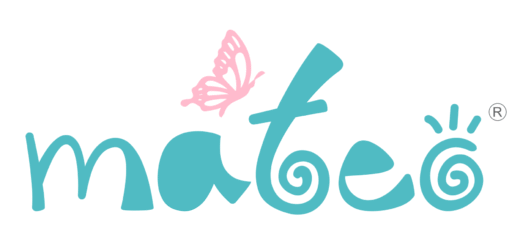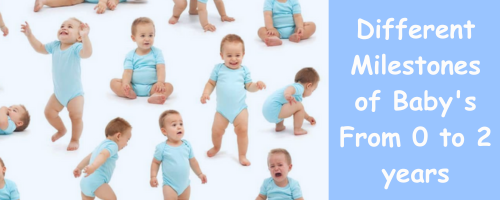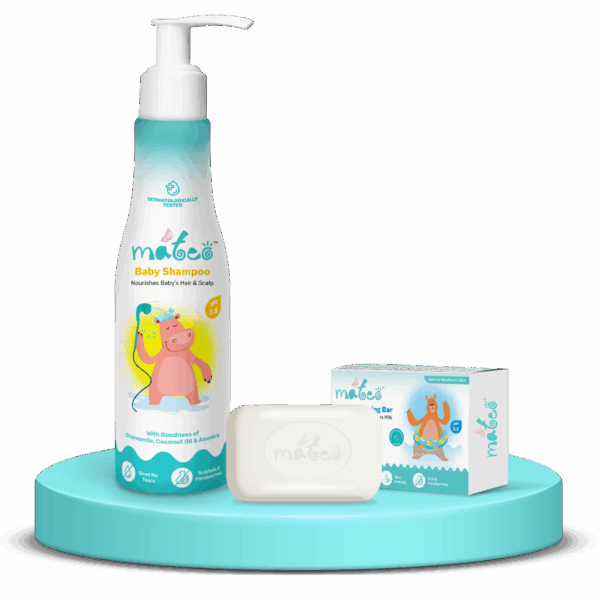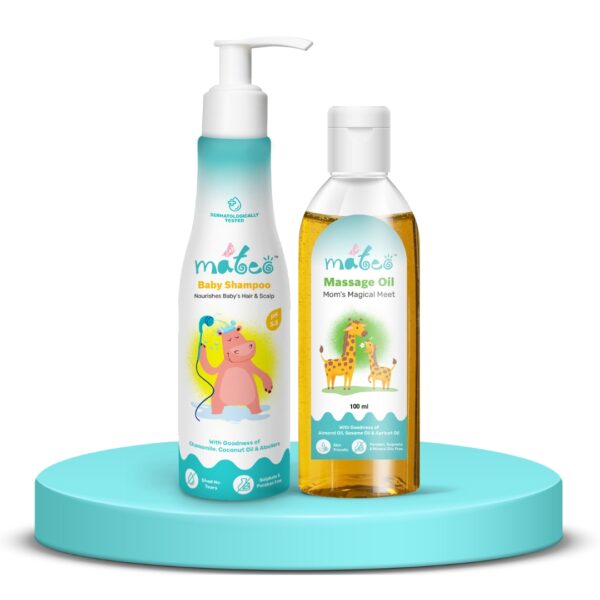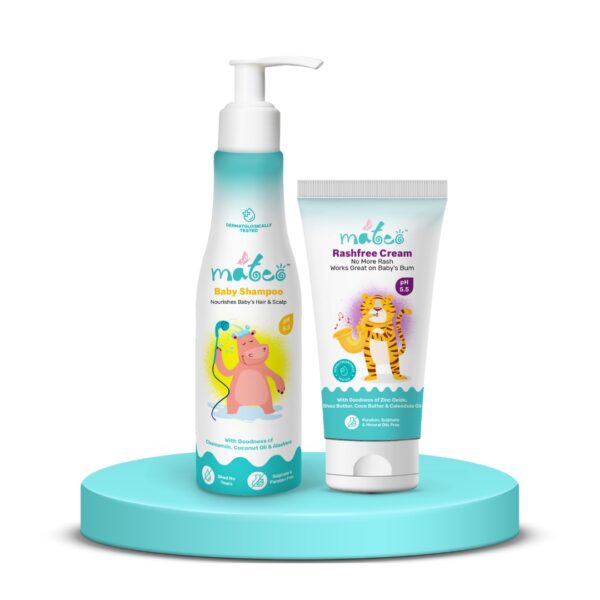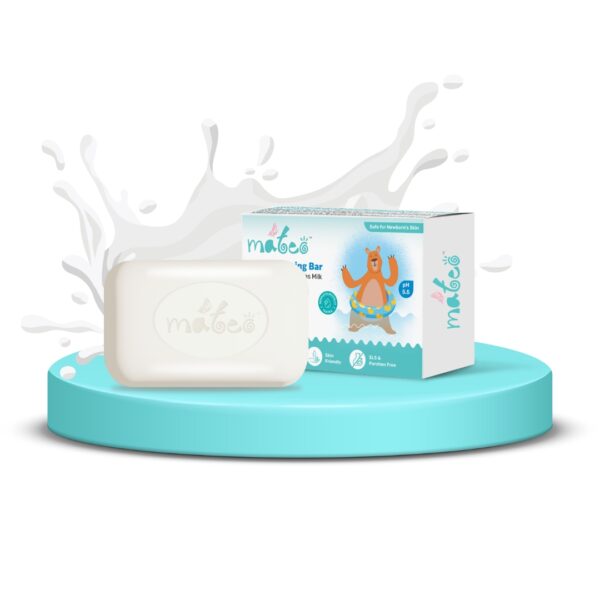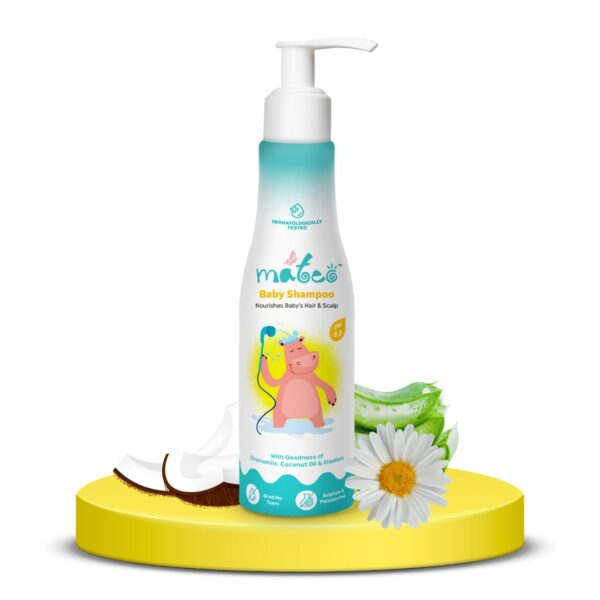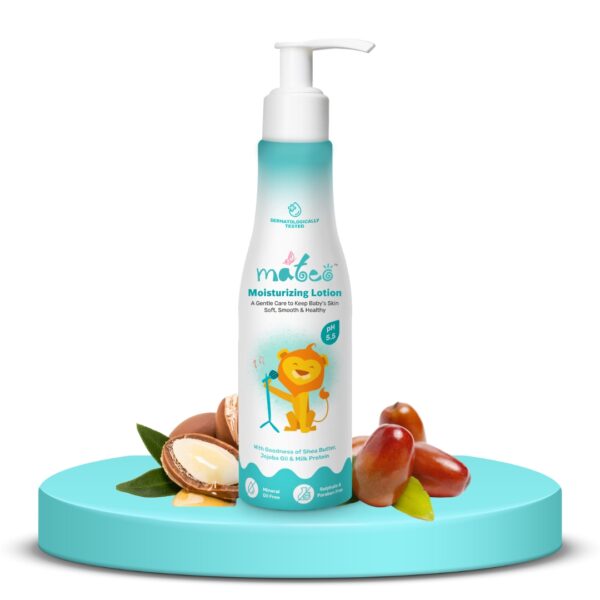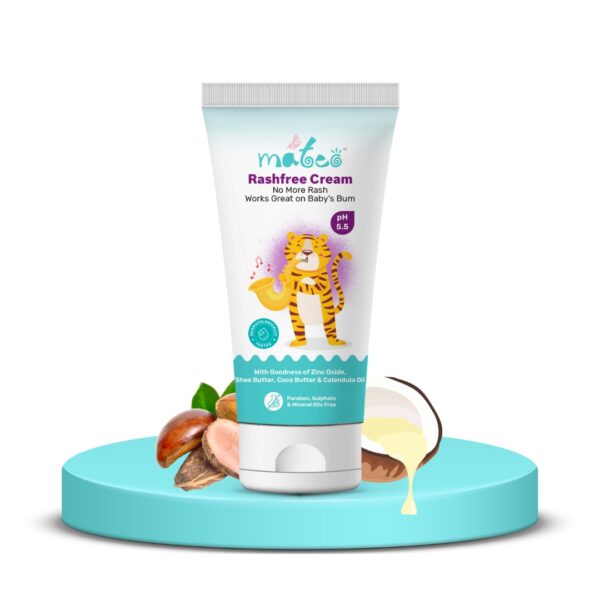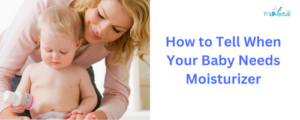Welcome to the amazing journey of being a parent! The different milestones of a baby’s growth are amazing. New things are learned in baby development and parenting. As moms, dads or those in charge you have a big part to play. This is about making your child feel loved and safe by how you talk with them and the place where they grow up.
Understanding Child Development Milestones in Baby Care
What Are Child Development Milestones?
Developmental milestones include big changes in a child’s growth, like how they move and learn new things. They cover many parts such as body movements, sense of touch or hearing, talking skills and feeding habits. These big steps are important signs of your child’s growth in their first years.
Planning Baby Steps and Kids’ Growth Points
Our developmental milestones are categorised into crucial domains: the ability to use hands, feeling through senses like seeing and hearing, talking skills, and how babies eat. These parts help caregivers to see and understand a child’s growth in many areas.
Why do Age Ranges Matter?
Each kid grows at their own pace, so age ranges for milestones are super important. These time ranges show when most babies usually display specific behaviours or skills, though baby times can be different.
Tracking Milestones Effectively
Many milestone apps help you easily watch how your baby is growing up. Put your baby’s birthday date and you open a full list of milestones. Videos help you understand each step clearly.
Helping Growth in the First Years of Life
0-3 Month Milestones
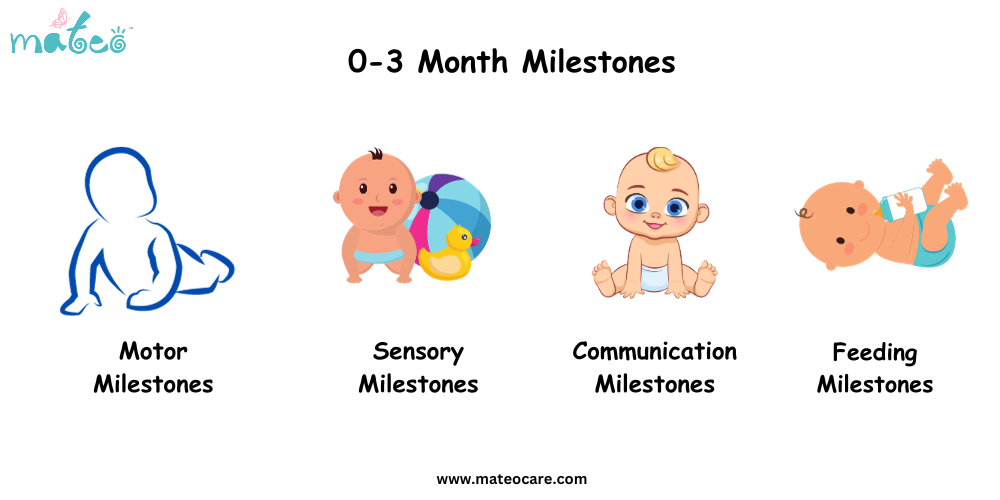
During these initial months, babies achieve significant milestones:
Motor Milestones: Things like lifting up with arms, raising the head while laying on the stomach and moving hands to mouth.
Sensory Milestones: Watching moving toys, enjoying faces and reacting to noises.
Communication Milestones: Smiling because of noise, moving towards voices and looking into eyes.
Feeding Milestones: Using nipples or bottles to suck and swallow well at meal times, while drinking the right amount.
4-6 Month Milestones
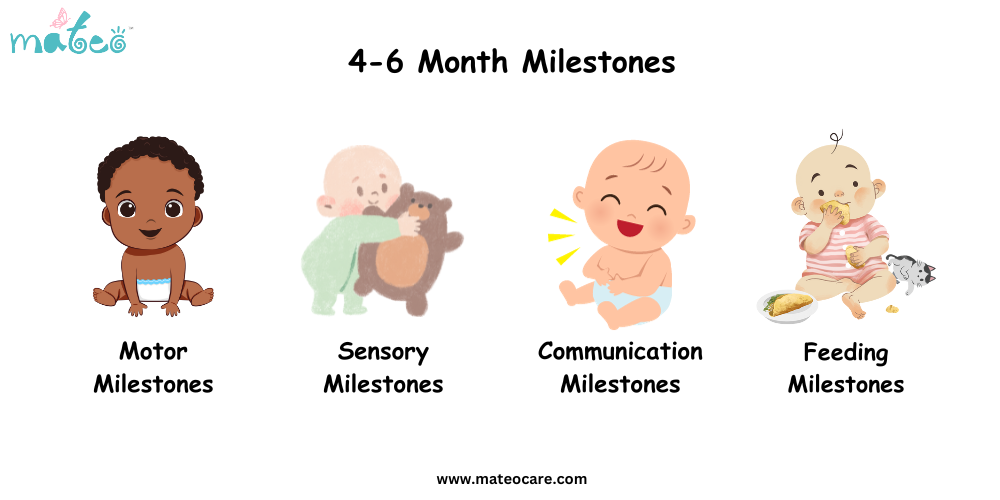
Progression in this phase includes:
Motor Skills: Turning on their back, sitting with help and grabbing things while they are lying down.
Sensory Perception: Touching things with hands, being satisfied and putting objects in the mouth.
Communication Abilities: Hearing noises, making talking sounds and seeing toys with sound.
Feeding Patterns: Introducing mashed-up solid foods and getting kids interested in eating.
7-9 Month Milestones
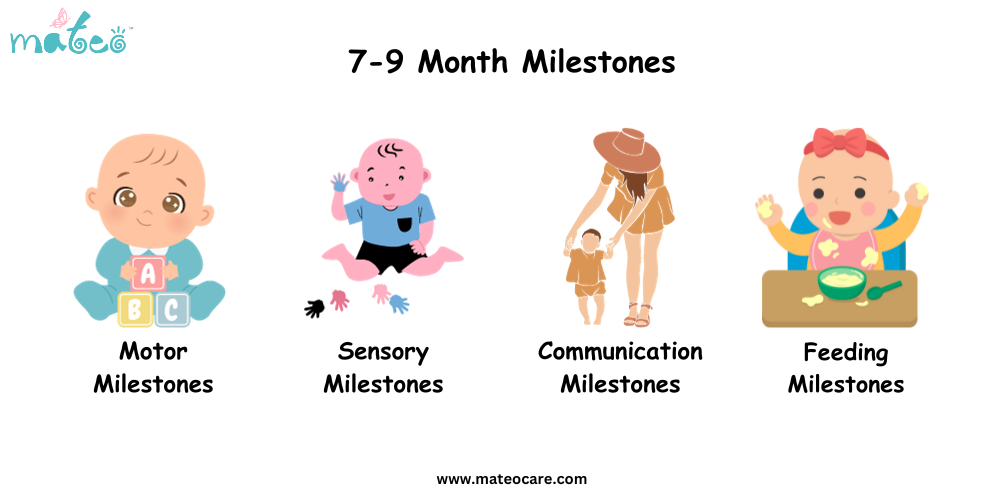
Advancements in this stage involve:
Motor Development: Sitting down without needing help, picking up little things with your hands and getting better at staying in control when rolling or sitting.
Sensory Development: Having fun with different actions, feeling things through touch and mouth, and watching the world from various spots.
Communication Progress: Improved talking like a baby, knowing familiar things when they are named and doing simple tasks with gestures.
Feeding Skills: More independence in using a bottle for drinking, having more food choices, and better reactions to new tastes or smells.
10-12 Month Milestones
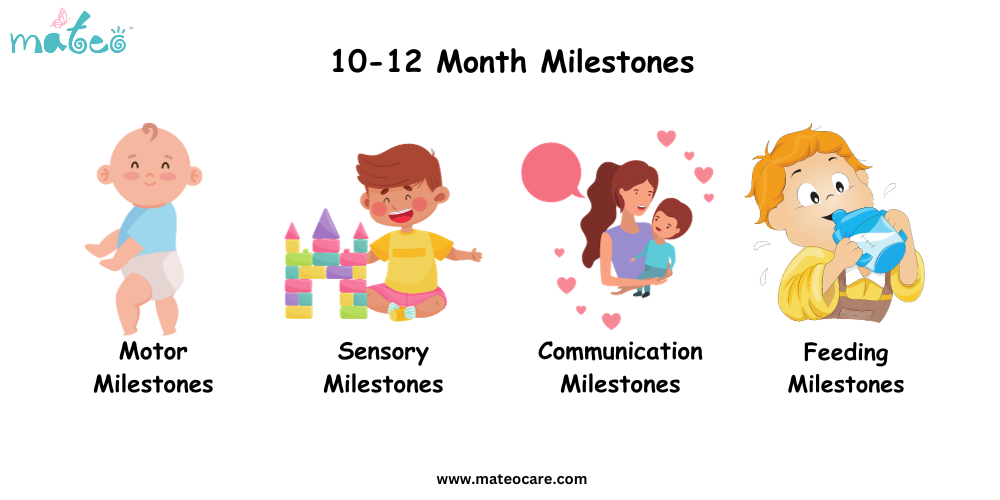
Key accomplishments include:
Motor Achievements: Getting up, walking alone and grabbing small things.
Sensory Advancements: Fun with songs, more investigation of toys and moving towards or away from things far off.
Communication Proficiency: Using “mama” or “dada”, talking more, and answering simple orders with signals.
Feeding Milestones: Feeding with fingers, adding more different foods and trying to use a cup without any lid.
13-18 Month Milestones
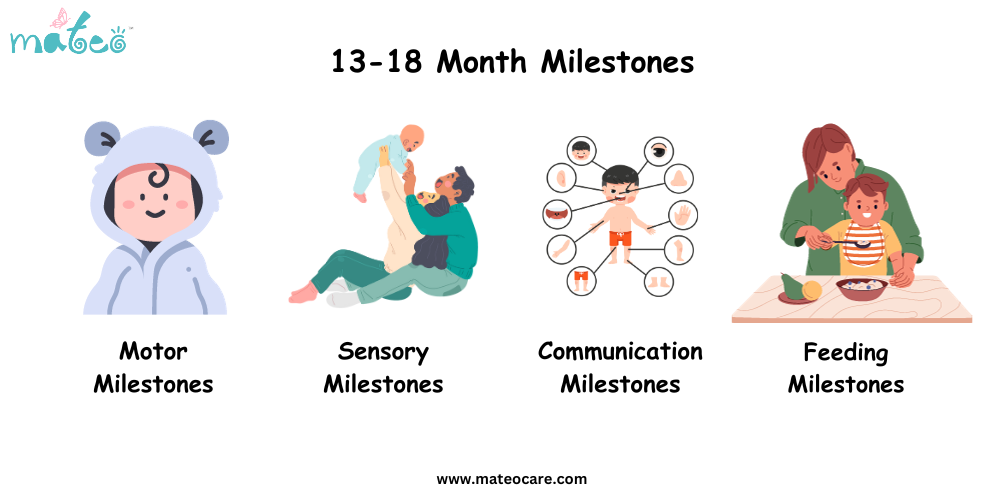
During this phase, children typically:
Motor Development: Walking alone, assisting with clothes and making daily sleep times regular.
Sensory Progress: More people taking part in changing clothes, regular sleep times and an increasing choice of foods.
Communication Milestones: Mixing sounds and actions, recognizing body parts when called out, getting what questions are being asked and replying to them.
Feeding Evolution: Slowly add chopped table foods and start using a cup better for drinking.
Continued Milestones and Parenting Role
19-24 Month Milestones
Motor Skills: Jumping, running fast, putting blocks on top of each other and using colourful crayons.
Sensory Perception: Learning to turn on switches, putting shapes and colours in order and playing with toys.
Communication Progress: Seeing things and people in pictures, using easy words. Also, doing tasks with two steps.
2-3 Year Milestones
By this stage, children generally:
Communication Development: Using short sentences with 2-3 words, knowing the main things and using subject signs. Also asking simple questions about what or where we are talking about.
Understanding Language: Understanding basic sentences and showing they get ideas about colour, space, and time.
Fostering Development Through Positive Parenting
From the very beginning, your interactions play a significant role in your child’s growth:
Talk and Engage: Talk a lot with your baby, answer their noises and read out loud often to help them learn a language.
Embrace Play: Play games, sing songs and give good feedback to help you grow your brain and emotions.
Ensure Safety: Make your home a safe place, don’t shake the baby, use good sleep rules for babies and stick to safety things at your house.
Healthy Habits: Focus on breastfeeding, and slowly start giving solid foods. Promote physical activity and limit how much time you spend in front of screens. Also, make sure to have a good sleep schedule for healthy grown-ups too!
Baby Products from 0 to 2 years
Choose baby products from 0 to 2 years that fit the individual needs. When it comes to taking care of a baby’s skin for babies up to two years old, make sure you use Mateo gentle products that are hypoallergenic, dermatologically tested and pH 5.5 balanced. Babies have soft, easily vulnerable skin that needs extra attention. Choose gentle cleaners made for babies that don’t use strong smells or harsh chemicals. Mateo baby moisturising creams help keep the baby’s skin moisturised and healthy without blocking pores.
Always pick products without extra things like parabens, phthalates and colours to lower the chances of bad reactions. Make sure to change diapers often using soft wipes that don’t have alcohol or smell. This keeps your baby’s skin healthy and stops it from getting irritated. It’s a good idea to ask your paediatrician for advice on what is best. This will help you pick the right things for their skin that can easily get hurt.
Final Thoughts: Embrace Every Milestone
As a parent, your job in helping your kid grow during these important years is very crucial. Keep in mind, while milestones give a general guide, every kid is different and might move forward at their speed. Don’t worry, go see your child’s doctor if you have any worries or need help with making your kid grow and develop well.
Having kids is a great journey with surprises, problems and lots of love. Value every achievement, enjoy each success and have fun on the special journey of your child’s growth from being a baby to turning into a little kid.

Nivethitha Sridharan
Nivethitha is a mother of two children and has a great interest in writing as an experienced mother. She publishes educational and interesting articles on baby care and also assists parents in selecting the finest baby products for their baby’s skin and well-being. She focuses on infant skin care and health issues. She also provides suggestions and guidance on baby care and avoids common skin disorders in newborns. Nivethitha likes studying and writing about new and innovative ideas that might assist people in finding solutions to their problems. She feels that content writing is an effective means of communicating thoughts and information to the world.
-
Baby Shampoo & Cleansing Bar (Combo Pack)
Add to basket₹580.00 -
Baby Shampoo & Massage Oil (Combo Pack)
Add to basket₹590.00 -
Baby Shampoo & Rashfree Cream (Combo Pack)
Add to basket₹575.00 -
Mateo All in One Pack
Add to basket₹1,700.00 -
Mateo Baby Cleansing Bar
Select options₹185.00 – ₹740.00 -
Mateo Baby Shampoo
Select options₹395.00 – ₹1,185.00 -
Mateo Massage Oil
Select options₹195.00 – ₹780.00 -
Mateo Moisturizing Lotion
Select options₹350.00 – ₹1,050.00 -
Mateo Rashfree Cream
Select options₹180.00 – ₹720.00
